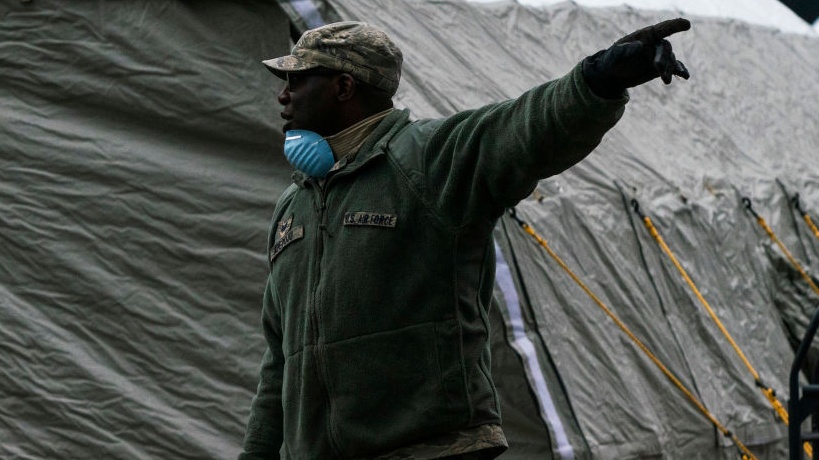The Air Force has released data showing that Black people are disciplined more often and in a harsher manner than anyone else while also being denied chances to move up in the ranks.
The U.S. Department of the Air Force announced the creation of an independent review into racial disparities by the Air Force inspector general in June and sent out the finalized report on Monday.
“Racial disparity isn’t an easy topic and something we don’t traditionally talk about much throughout our levels of command. Now we must all move forward with meaningful, lasting, and sustainable change,” said Air Force Chief of Staff Gen. Charles Q. Brown, Jr. in a statement.
Brown is the first Black man to serve in his position.
In the report, Air Force Inspector General Lt. Gen. Sami Said wrote that the findings confirm "racial disparity exists for Black service members in the following areas: law enforcement apprehensions, criminal investigations, military justice, administrative separations, placement into occupational career fields, certain promotion rates, professional military educational development, and leadership opportunities."
"Measured in Rates Per Thousand (RPT), Black Airmen are more likely to face formal disciplinary action than their white peers. Specifically, Black service members were 74 percent more likely to receive Article 15s and 60 percent more likely to face courts-martial than white service members," the study adds.
Black service members are 72 percent more likely to receive uniform penalties than white service members and were 57 percent more likely to face court-martial, the report found.
Said notes in the study that Black service members are twice as likely as white members to be involuntarily discharged based on misconduct and Black service members are 1.64 times more likely to be suspects in Office of Special Investigations (OSI) criminal cases. They are also twice as likely to be arrested.
"Black service members are underrepresented in operational career fields and overrepresented in support career fields, which may affect their promotion opportunities," the report read. "Black service members are underrepresented in promotions to E5-E7 and O4-O6. Additionally, Black officers are underrepresented in Definitely Promote (DP)."
In addition to hard data about disciplinary rates and promotions, the Air Force sent out a survey to thousands of members and conducted interviews with Black service members to get some perspective.
"Black service members voiced a consistent lack of confidence in DAF discipline processes and developmental opportunities compared to their white peers," the report read. "For example, of the 123,000+ DAF IG Survey respondents: two out of every five Black enlisted, civilians, and officers do not trust their chain of command to address racism, bias, and unequal opportunities. One out of every three Black service members said they believe the military discipline system is biased against them."
More than 60 percent of all Black respondents said they did not believe they would get the same benefit of the doubt as their white peers if they get in trouble and one in every three Black officers said they do not "believe the Air Force and Space Force provide them the same opportunities to advance as their white peers."
The Air Force, and many other parts of the military, have long histories with racism and prejudice in their ranks.
Before the report came out, the Air Force held events where Black members spoke about the racism they faced from other service members and from superiors who routinely disrespected them or passed them over.
Secretary of the Air Force Barbara Barrett thanked the survey participants for their honesty and said it would lead to concrete changes in how the Air Force and Space Force address biases.
“The IG review identified racial disparities within military justice and developmental programs. Now we’re analyzing root causes and taking appropriate actions to address these causes," Barrett said. "These actions will include evaluating potential barriers to inclusion, expanding mentorship programs, and exploring ways to inspire and attract diverse youth to join the Air Force and Space Force.”
